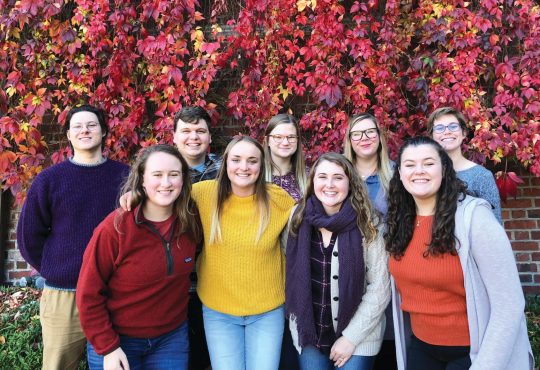Religious freedom imperative for US military: “So help me God,” similar language must be optional in oaths
Many of this country’s oaths, like the military oath of enlistment and even the Pledge of Allegiance, contain references to God.
Despite many legislative pushes to maintain the separation of church and state, such as in the case of marriage equality, these references have remained.
Strong religious language is deeply rooted in many of the oaths and pledges recited for official and governmental purposes.
The Pledge of Allegiance is one example that is particularly perplexing. The words “under God” were not even a part of the original pledge, but were actually added in 1954 thanks to President Eisenhower, in a response to the Red Scare.
Many courts still expect witnesses and testifiers to swear to tell the truth with one hand on a Christian Bible.
Even the oath of office of the presidency is not exempt to religious language.
Groups like the Military Religious Freedom Foundation (MRFF), however, have been a driving force in making sure members of the U.S. Military are granted religious freedom.
Earlier this month they began protesting the words “So help me God” at the end of the loyalty pledge for the Air Force Academy in Colorado. While the foundation wanted the words completely removed, they were willing to settle for it becoming optional.
Mikey Weinstein is founder of the MRFF.
“To tie the honor code to a religious test violates the no-establishment clause of the Constitution,” Weinstein said.
For clarification, the “establishment clause” in the First Amendment reads, “Congress shall make no law respecting an establishment of religion.” Forcing someone to swear “under God” is a clear violation of this clause.
The Academy agreed, and last week announced, its decision to make the “So help me God” phrase an optional part of the oath. “We need to be respectful of all people of faith and all people of no faith,” Academy spokesman David Cannon said.
It is a bit unclear what the Academy means by “optional,” however. What Weinstein wants to know is whether the words will be taken out or left in, given that he wants the words removed completely.
This removal would be controversial. Religiously inclined people might feel left out, whereas if the words were left in, those individuals who would prefer not to say them would also feel excluded.
It is still unclear what the Academy will choose to do with the official wording of the phrase; but, the issue highlights the distinction between religious freedom and freedom from religion, which continues to be a problem with many official oaths and pledges used today.
The Air Force Academy in Colorado is not the only academy or institution in this country to refer to God in their pledge. The official Army Enlistment Oath also contains the words “So help me God.” And although it is not required for the president to swear or put a hand on the Bible, or say the phrase “So help me God,” it has become commonplace and expected.
Why do we, as a nation, continue to force, perhaps unintentionally, Christian ideology onto others?
Regardless of citizens’ religious beliefs in general, there is no place for religion in the government. Having a religion or lack thereof is a personal matter and one that should not be interfered with; furthermore, it should not be a concern of the government.
As long as our government officials, military members and general population are being pressured to use language tied to the Christian faith, the world will see us as a Christian nation.
We cannot claim to be a country that honors religious freedom as it is clearly stated in the Constitution as long as this is the case.
“When one dons a U.S. Military uniform, there is only one religious symbol: the American flag,” Weinstein said.
A common religion should not be what unites our country or military, but rather a belief in the betterment of the nation as a whole.

